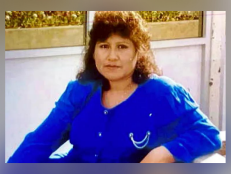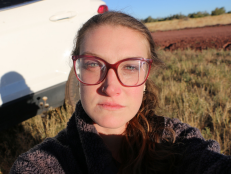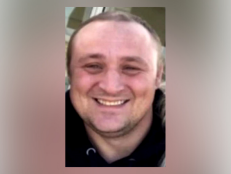Authors Jonathan and Jesse Kellerman on Examining the Exceptions to the Rules of Human Behavior
In our Q&A with father/son duo Jonathan ad Jesse Kellerman the authors of Half Moon Bay discuss their fascination with human behavior, their writing process and more.

Jesse and Jonathan Kellerman [Photo by Joan Allen]
Have you always been interested in mystery and thrillers? Why did you decide to write your book based around crime?
Jonathan: Since childhood, I've been fascinated by human behavior. It led me to become a psychologist and, later, a crime novelist, because evil is the greate psychological unknown. I like to say psychology's all about the rules of human behavior and crime fiction is about the exceptions.
Jesse: Crime novels have a built-in structure. There's a beginning (mystery), middle (investigation), and end (solution). This makes them a useful and flexible tool for examining all sorts of interesting questions about human behavior. Additionally, crime and violence place people in extremis; we move with characters through the most difficult and significant moments of their lives.
Is your novel inspired by any real criminal cases? How did you first conceive of the novel?
Jonathan: The primary pleasure of writing crime novels is making stuff up. Once it's in the headlines, I have no interest in it.
Jesse: With Half Moon Bay, there was no one case that provided the inspiration for the events of the novel. Obviously, if you look hard enough you could probably come up with real world cases that mirror elements of the story. There's nothing truly new under the sun, and as good as my imagination is, it can't compete with the collective output of billions of other people, past and present. I try to read widely and absorb as much information as I can, because the world is a fascinating place, and I'm continually amazed by what other people will do, say, or think of. That said, the process of writing itself is a highly private and individualized activity. I aim to be guided--but not constrained--by reality.
What is your writing process like? Do you gather all your research / plot lines first and write an outline before putting pen to paper, or do you dive right in?
Jonathan: It takes as long to plan a book as to write it. I do my own research, outline meticulously, and have a good sense where I'm going before I begin chapter one. Writing with Jesse has been great. We'd written a lot of books individually before we began collaborating and fortunately our approaches were synchronous.
Jesse: My Dad and I have a lot in common, but we're not the same, and it's fortunate that in many respects we have complementary skill sets. We also have a great deal of mutual respect, both as writers and as father and son. Our process involves lots of talking—going back and forth over the phone, bouncing ideas off of each other, each of us building on something the other has said. Sort of like improv.
When it comes to putting pen to paper, we always begin with an outline. Learning to outline was one of the things that enabled me to write professionally. Prior to that, I used to just "dive right in"—with disastrous results. So some idea of where you're starting and where you're heading is essential. But it's also important to be open to ideas that appear along the way. There's no guarantee that the weeks you spending outlining are the most creative weeks of the year. Again, as with reality vs. imagination, you're trying to strike a balance, in this case between being organized and being spontaneous.
Who is your favorite character in your book? Why?
Jonathan: Obviously Alex Delaware, Milo Sturgis in the Delware novels and the brilliant, preternaturally curious coroner Clay Edison in the books featuring him – of which Half Moon Bay is a shining example. These guys are like old friends and they've certainly been loyal. That's not to say other characters don't get into our consciousness. They all do. Every single one.
Jesse: In the Clay Edison series, it's Clay, of course. He's thoughtful and decent and I always enjoy stepping into his mind. The series features a cast of recurring characters—Clay's wife Amy, Berkeley cop Nate Schickman, Oakland detective Delilah Nwodo—all of whom are real to us and for whom we have great affection.
What do you hope readers take away from your writing / story? OR What’s one of the most interesting responses readers have shared about your books?
Jonathan: It's clear to me that what readers love are the characters and the vivid sense of place we work at instilling. Of course, a strong plot is essential. Wihtout it you've got a house of cards rather than an eduring structure. But it's the characters who endure i people's memories.
Jesse: I second my Dad's response. Characters are what stick.
Is there a recent case/person that you are particularly interested in? Why?
Jonathan: Again, I don't plum the headlines. That's for writers who lack imagination.
Jesse: The cases that most interest me tend to be historical—not for the sake of using them in my writing, per se, but simply as a reader and student of history.
What’s your favorite ID Show/host/experience?
Jonathan: Faye (Kellerman) and I were both hosts on Murder By the Book serveral years ago and it was terrific fun. Not sure MC'ing is my forte but Faye did an amazing job.
Jesse: I'm a big fan of Disappeared.



![Frank Morris [left], Clarence Anglin [middle], and John Anglin [right].](http://investigationdiscovery.sndimg.com/content/dam/images/investigationdiscovery/crimefeed/legacy/2023/05/us-marshals-frank-morris-john-anglin-clarence-anglin-52623.png.rend.hgtvcom.231.174.suffix/1685039754861.png)





